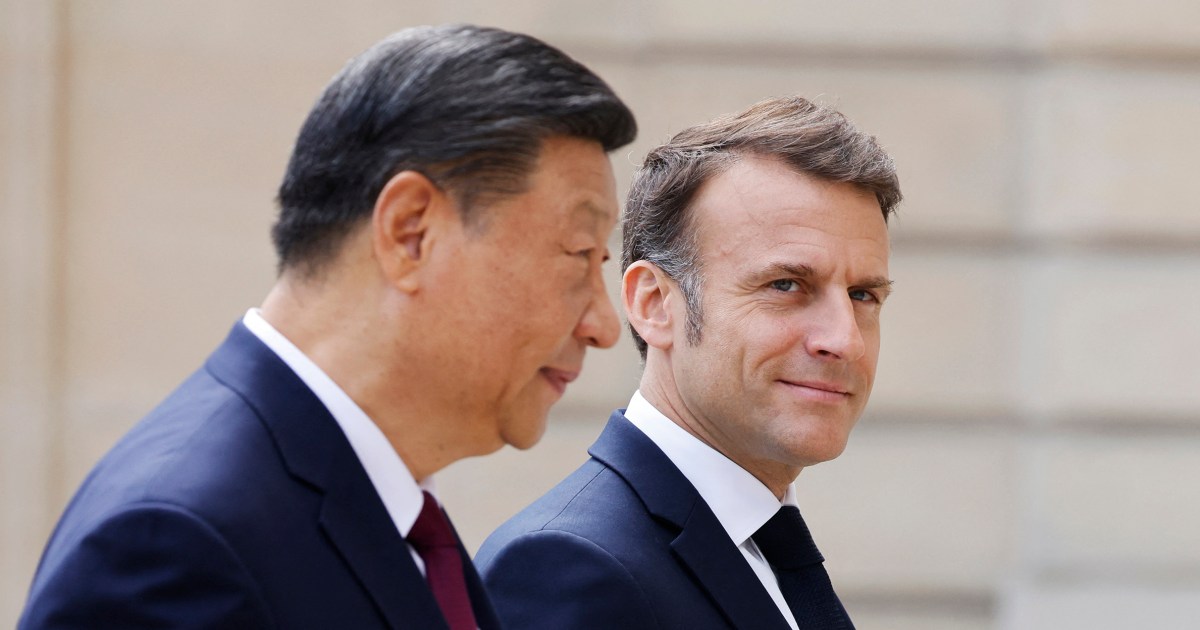World
Why the US presidential elections matter for Europe

The United States will go to the polls on Tuesday 5 November 2024 to vote for the country’s next president. It’s the latest election in a year full of elections: from Taiwan to the United Kingdom, from India to the European Union, from Mexico to South Africa, to name just a few. On this side of the Atlantic Ocean, why should Europe care about the US presidential election?
The first aspect is security, replied Francesco Nicoli, assistant professor of political science at the Politecnico Institute of Turin, professor of political economy at Gent University, affiliate fellow at the department of economics of the University of Amsterdam and non-resident fellow at Bruegel. “The US is still the guarantor of European security. Europeans are far less prepared to eventually fight in a conflict, should the need arise,” he said.
But it also concerns–more broadly–Europe’s security interests. Russia’s full-scale invasion of Ukraine is nearing its 1000th day. “It is clear that whatever happens in Ukraine will have huge consequences for the future of Europe.” Ukraine’s success would mean that the country would remain a shield between Russia and the rest of Europe; should Ukraine fall, an additional 15m to 20m refugees could enter Europe, argued Nicoli. “The migration impact of a Russian victory in Ukraine, I think, is severely underestimated in the public opinion.”
Trade, democracy and economic interests
The second issue at stake is trade. “The US and the EU are very strictly associated with each other from an economic perspective,” he continued. “Trump has repeatedly signalled his willingness to escalate a trade war with the EU, and remember, the EU and the US do not see eye to eye when it comes to regulation.” In addition, “Trump has also made clear that security might be a bargaining chip in order to extract economic concessions from the EU. So this is a major risk that the EU faces.”
Point three is less tangible. “Europe and the US are aligned on the global stage,” Nicoli said. They are “beacons of democracy” and “strong defenders of democracy worldwide.” But democracy has been backsliding in many countries in recent years. “If something shatters the capacity of the US and the EU of working together for the broader objectives of democracy worldwide, we face serious problems ahead.”
Finally, the US has its own security concerns, said Nicoli. “Whatever the US does with regards to Iran and China will have huge impacts on European economic security.” That could also put Europe’s economic interests in danger.
Potential impacts of candidates’ policies
How could the policies of Kamala Harris and Donald Trump impact Europe?
“It’s complicated,” replied Nicoli, “because for the first time in a few years, neither candidate has a very strong, clear platform. We know some of the things they run on, but this campaign–which I’ve been following pretty closely–is a lot about messaging, and the message is being adapted and tailored to the audience.”
“So it’s actually hard to understand what exactly Harris–for instance–wants to do when it comes to Ukraine. We know that maybe she might have a stance that is a bit stronger than the one Biden currently does, but we don’t really know,” he said. “And at the same time, on security, Trump has sent all sorts of contradictory signals.”
“The only agenda we know is the one of the [Republican] vice presidential candidate JD Vance. He has been very clear–repeatedly–with his votes in the Senate, especially when it comes to Ukraine,” Nicoli noted. Vance has been critical of Ukraine and has opposed additional aid for the country. Abandoning Ukraine is “as close as we can get to the end of the world for Europe, metaphorically–and I hope only metaphorically,” said Nicoli.
So “it’s hard to have a very clear understanding of what these candidates really ultimately will do. We have suspicious; we have fears,” he added. A lot of the items on their agendas pertain more to domestic issues and wouldn’t directly impact European citizens. But “we don’t have a programme that we can compare for either candidate.”
“This is really a vote about the person, not a vote about the policy agenda that they have, at least in the way we read it,” Nicoli concluded. “It’s hard to make an assessment beyond our fears and concerns to what this really means for Europe.”










